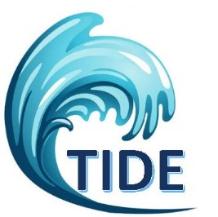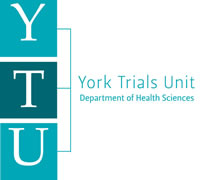TIDE
A multi-centre randomised controlled non-inferiority and cost effectiveness trial comparing Polyhexanide and Chlorhexidine with Neomycin to Mupirocin for nasal meticillin-resistant Staphylococcus aureus (MRSA) decolonisation amongst adult hospital in-patients
Bacteria such as Staphylococcus aureus (S. aureus) live on and around us without causing harm. But patients coming into hospital who carry S. aureus in the nose and skin are at increased risk of developing infections if the bacteria get access to areas such as the site of surgery or a drip to give fluid or drugs. These infections are difficult to treat when a resistance to penicillin has built up, known as meticillin-resistant Staphylococcus aureus (MRSA). To reduce the risk of getting an infection while in hospital, many patients are routinely “decolonised” of the S. aureus bacteria, by application of an antibiotic nasal ointment (mupirocin).
There are growing concerns that some S. aureus is resistant to mupirocin and therefore identification of alternative treatments is needed. This study looks at two alternative treatments to find out if they are as effective as mupirocin.
Adult hospital in-patients who are found to carry MRSA following a routine screening swab on admission to a participating hospital will be invited to take part in the study. Patients who consent to take part will be put in one of three groups. One group will be given the usual treatment of nasal mupirocin, the second will use nasal polyhexanide gel (an antiseptic) and the third group, nasal neomycin cream (an antibiotic). This will be a randomised study and neither the patient nor the clinician will choose the group to ensure a fair comparison between the treatments. All three groups will also be given chlorhexidine for washing/showering for five days. We will then collect the results from a repeat nasal swab taken 48 hours after they finish treatment. Our measure of whether the proposed alternative treatments work as well as mupirocin will be the number of successful nasal decolonisations.
Aims and Objectives
We aim to investigate whether there are effective and cost-effective alternatives to nasal mupirocin for early decolonisation of MRSA amongst adult hospital in-patients.
The objectives are to undertake:
(i) A multi-centre, three-arm parallel group, non-inferiority randomised controlled trial to determine whether nasal polyhexanide gel (an antiseptic) or chlorhexidine with neomycin cream (an antibiotic) plus chlorhexidine body wash is not inferior to nasal mupirocin ointment plus chlorhexidine body wash for early nasal decolonisation of MRSA amongst adult hospital in-patients.
(ii) A 9-month internal pilot to confirm trial feasibility
(iii) An analysis of secondary outcomes
(iv) A cost-effectiveness analysis of the three interventions from the NHS perspective in order to identify the most efficient provision of future NHS care
Study Setting
UK NHS secondary care
Target Population
Adult in-patients (18 years old or older) who are identified as being colonised with MRSA during routine hospital admission screening.
The recruitment strategy aims to include vulnerable and underserved populations, including: elderly patients living in a long-term care facility, those who lack capacity, patients from deprived areas and ethnic minorities.
Recruitment Target
We aim to recruit 3,000 participants
Health Technologies being Assessed
Treatment involves the patient applying a nasal cream or ointment and using a chlorhexidine body wash as follows:
- Mupirocin nasal ointment (2%) applied to the inner surface of each nostril three times a day for five days
- Polyhexanide nasal gel (0.1%) applied to the inner surface of each nostril three times a day for five days
- Chlorhexidine (0.1%) with neomycin (0.5%) nasal cream applied to the inner surface of each nostril four times a day for ten days
MRSA swabs and clinical data will be collected at baseline, 48 hours following completion of treatment and at 4 weeks following completion of treatment.
MRSA swabs will be taken 48 hours after treatment has finished. Patients will be rescreened 4 weeks later.
Privacy Notice: How we use your research data
Funding
| Funders(s) | NIHR Health Technology Assessment |
| Sponsor | South Tees Hospitals NHS FT |
| Start date | August 2021 |
| End date | October 2024 |





